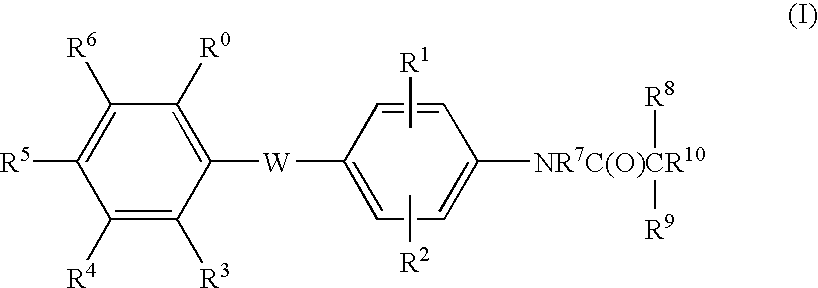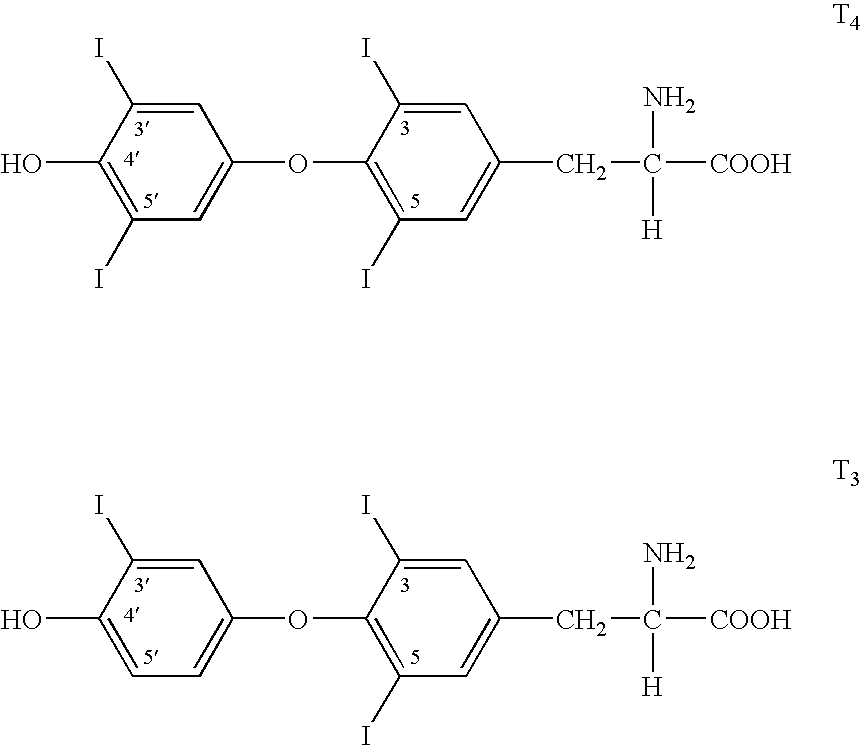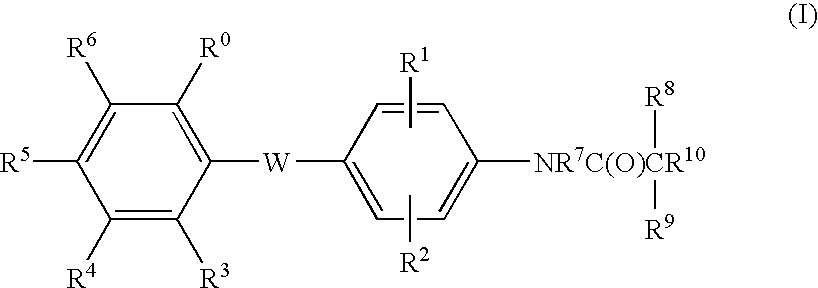Malonamic acids and derivatives thereof as thyroid receptor ligands
a technology which is applied in the field of malonamic acid and derivatives thereof, can solve the problems of damage to the heart, and increased mortality and incidence of type 2 diabetes mellitus, and achieve the effect of reducing t3 levels and reducing deiodinase i activity
- Summary
- Abstract
- Description
- Claims
- Application Information
AI Technical Summary
Benefits of technology
Problems solved by technology
Method used
Image
Examples
example 1
N-[4-(4-Hydroxy-3-isopropyl-phenoxy)-3,5-dimethyl-phenyl]-malonamic acid
Step A
4-(3-Isopropyl-4-methoxy-phenoxy)-3,5-dimethyl-nitrobenzene
[0581] The title compound of Step A (778 mg) was prepared from bis(3-isopropyl-4-methoxyphenyl)iodonium tetrafluoroborate (2.50 g, 4.88 mmol) and 2,6-dimethyl-4-nitrophenol (540 mg, 3.25 mmol) according to the procedure described in the J. Med. Chem., 38, 695-707 (1995).
Step B
4-(2,6-Dimethyl-4-nitro-phenoxy)-2-isopropyl-phenol
[0582] To a solution of 4-(3-isopropyl-4-methoxy-phenoxy)-3,5-dimethyl-nitrobenzene (500 mg, 1.59 mmol) in CH2Cl2 (12 mL was added boron tribromide (1 M in CH2Cl2, 3.2 mL, 3.2 mmol). The resulting mixture was stirred 1 h at RT then quenched with water (15 mL) and 1 M HCL (10 mL). After stirring 30 min at RT, the solution was extracted with CH2Cl2 (3×20 mL). Combined extracts were washed with brine (50 ml), dried over anhydrous sodium sulfate, filtered, and concentrated to give the title compound of Step B. The title p...
example 1-1
N-[3,5-Dichloro-4-(4-hydroxy-3-isopropyl-phenoxy)-phenyl]-malonamic acid methyl ester
[0587] MS (APCI−) Calc.: 411.1, Found: 409.9 (M−1).
example 1-2
N-[4-(3-sec-Butyl-4-hydroxy-phenoxy)-3,5-dimethyl-phenyl]-malonamic acid methyl ester
[0588] MS (APCI−) Calc.: 385.3, Found: 384.3 (M−1).
PUM
 Login to View More
Login to View More Abstract
Description
Claims
Application Information
 Login to View More
Login to View More - R&D
- Intellectual Property
- Life Sciences
- Materials
- Tech Scout
- Unparalleled Data Quality
- Higher Quality Content
- 60% Fewer Hallucinations
Browse by: Latest US Patents, China's latest patents, Technical Efficacy Thesaurus, Application Domain, Technology Topic, Popular Technical Reports.
© 2025 PatSnap. All rights reserved.Legal|Privacy policy|Modern Slavery Act Transparency Statement|Sitemap|About US| Contact US: help@patsnap.com



